A springboard into the 21st century job market
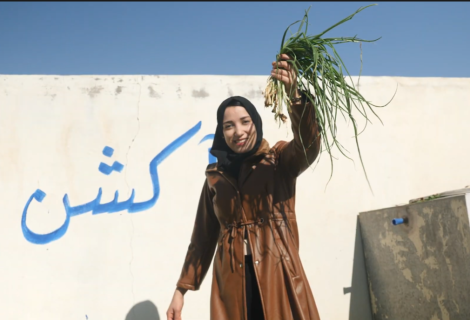
A young woman is telling a story. She speaks about being part of a training program where she learnt to make handicrafts – but it’s not until she talks about the moment when she sold her first product that her eyes suddenly light up.
“There was a small grocery shop across the street, and I went there to buy some things,” she says. “ The cashier asked me about what I do for a living. I told him that I didn’t have a job but I make handicrafts. He was intrigued and asked me, ‘Like what?’ He saw the phone chains I make. Then said, ‘They’re beautiful. Would you be interested in selling them?’. “I was caught off guard, it was my first time selling any of my products. Then I replied saying, ‘Yes, why not!’”
It’s at this point that she smiles, and you can almost feel her sense of accomplishment and gentle pride as if they were your own.
“He ended up buying items for his entire family,”
she goes on.
“I was happy, and I went home and told my father all about it. I was holding the money I earned on my own in my hands. I provided for myself. My efforts have paid off!”
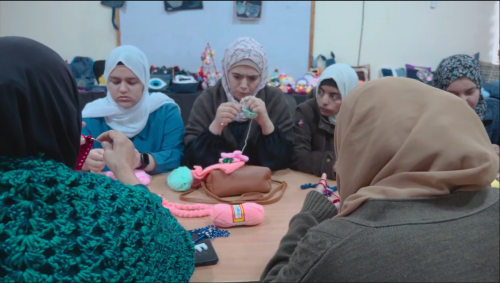
This young woman was a participant in ActionAid Arab Region’s (AAAR) “Ready for Tomorrow” project, an initiative rolled out under the framework of the Danish Arab Partnerships Programme (DAPP) and through ActionAid Denmark, along with local partners in Jordan and Tunisia.
The aim of Ready for Tomorrow is to prepare young women and men for the economy of the 21st century by training them on various skill sets needed for the job market.
To this end, the program is based on three pillars: life skills training, technical skills training, and youth group initiatives.
The life skills training component is comprised of six core competencies, including: self-development, communication skills, work ethics, team building, team work and leadership.
“The life skills training had a good impact on our initiative,” says a facilitator, watching the young people he’s responsible for get so much out of the training. “Their knowledge has expanded and their level of self-management has increased. You can see that they have become more active, which has reflected on our local community.”
The technical skills training component encompasses a range of specialised vocational training, including: tailoring, video editing, film making, agriculture, fashion design, and make-up art. In addition to core skills, participants are taught how to create a product development plan to help them break out from conventional approaches to give them an edge in the market.
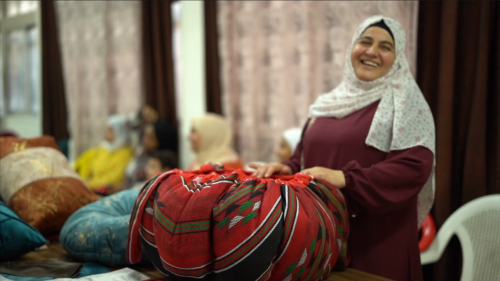
Agriculture training has proved particularly successful, as young women are taught a variety of skills in the field of organic agriculture, including planting organic vegetables, and making compost.
“We can take advantage of a small space in our home where we can plant radish, rocca, and other vegetables that most of us use regularly,” says one participant. “In the future, this home initiative could turn into an income generating project. Not only that, but it is also good for your children. You feed them healthy food.”
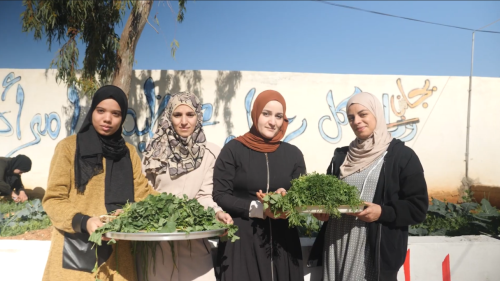
The youth group initiative component is collaborative in nature and takes a problem-solving approach. Trainers work with various youth groups according to their interests and specialties, and they focus on initiatives that aim to serve the Jordanian community. For example, one group was passionate about climate justice, and so facilitators worked intensively with them over a month-long period on a project that aims to educate young people and raise awareness about the effects of climate change.
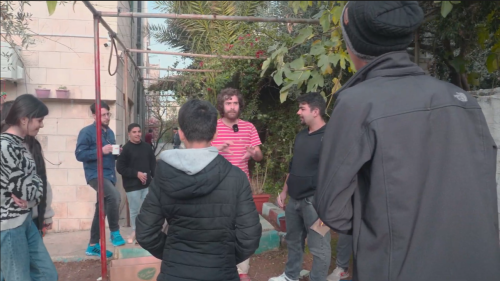
One Ready for Tomorrow trainer speaks about the opportunity to meet and collaborate with people from so many diverse fields as a great starting point.
“This experience has been a door for me, which introduced me to new people. New majors, and spaces for further collaboration. If my initiative succeeds today, it is because of the rich experience I had with Ready for Tomorrow,” she says.
Within the first year of the project alone, AAAR and our partners managed to reach 2413 young people through an inclusive approach for people with disabilities, targeting 18 to 35 year olds in eight governorates. Over and above the training, Ready for Tomorrow offered participants 67 networking opportunities and created 73 job opportunities in a variety of fields in the Jordanian job market.
The trainers involved in the initial phase of the program are full of ideas and enthusiasm about what else they could offer participants in the future, and there is a strong sense of hope that the program continues, reaching more young people and equipping them with the skills for their own tomorrows.